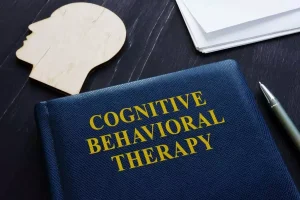
Emerging research has found that there is a genetic link between AUD and depression. That’s why your doctor or psychologist will work with you to create a treatment approach that addresses both issues. Your doctor will likely conduct https://ecosoberhouse.com/ a physical exam and a psychological evaluation. These tests help them calculate your risk factors for either condition. This multi-test approach will help them rule out other conditions that might account for your symptoms.
- Having either depression or alcohol use disorder increases your risk of developing the other condition.
- Methods used in psychotherapy aim to help individuals identify and change harmful behavioral and thought patterns.
- Extensive evidence proves Naltrexone and acamprosate reduce heavy drinking and promote abstinence.
Symptoms of alcohol use disorder
Alcoholics anonymous (AA) and alcohol treatment centers offer classes and support group meetings. In addition, your doctor may prescribe medicines that are meant to lower alcohol cravings, which can reduce your desire to drink. Naltrexone, Acamprosate, and disulfiram are also FDA-approved medications that can help curb alcohol cravings.
- The National Institute of Alcohol Abuse and Alcoholism (NIAAA) encourages medical providers to screen patients for alcohol consumption and initiate interventions aimed at harm reduction.
- According to the National Alliance on Mental Illness (NAMI), 64% of people with an existing mental illness report that the holidays make their condition worse.
- Learn more about NIMH’s commitment to accelerating the pace of scientific progress and transforming mental health care.
- Brief tools are available to help non-specialists assess for AUD and screen for common co-occurring mental health conditions.
- Many who struggle with alcohol use disorder (AUD), commonly known as alcohol addiction, may also find themselves struggling with co-occurring mental health disorders.
Can Alcohol Make Depression Worse?
The interactions between alcoholism and these disorders are evaluated by posing a series of questions, and the reader is encouraged to review the articles cited in the reference list. In keeping with the guidelines of Alcohol Health & Research World, review articles are emphasized. Readers interested in more detailed descriptions of the methods of particular studies, however, are referred to specific citations within those reviews. When patients who drink heavily report anxiety, it helps to create a timeline with them to discern whether the anxiety is alcohol-induced or, instead, a pre-existing or primary anxiety disorder, which can help set expectations and a treatment plan.

Treatment for Co-Occurring Depression and Alcohol Use Disorder

Evidence-based dual diagnosis treatment can lead to positive health outcomes. They may be able to help determine one’s medical needs and perhaps refer them to a suitable rehab center. Additionally, one may consider visiting the SAMHSA treatment locator to search for programs by zip code.
What are the immediate clinical implications of coexisting depressive and anxiety states among alcoholics?
Cognitive behavioral therapy generally starts in a rehab setting and can be continued after treatment with the help of an alcohol counselor. A treatment provider may also prescribe an antidepressant to balance mood swings and other symptoms of depression. While medications can be extremely beneficial during recovery, they should only be used alongside other forms of treatment. People with major depression are typically only able to see the negative in various personal and professional situations. This mental health condition can take a toll on overall well-being, including how a person sleeps, eats and thinks.
Social Media

Enter your phone number below to receive a free and confidential call from a treatment provider. This release of dopamine may help explain why many people believe alcohol and depression alcohol eases their depression — but these effects are temporary. D’Alessandro first began feeling a deep, inexplicable sadness during adolescence.
- These are life events that result in a variety of feelings, with sadness being a significant factor for them.
- Research shows that people who drink alcohol are more likely to develop mental health problems.
- That’s why your doctor or psychologist will work with you to create a treatment approach that addresses both issues.
How are substance use disorder and co-occurring mental disorders diagnosed and treated?

